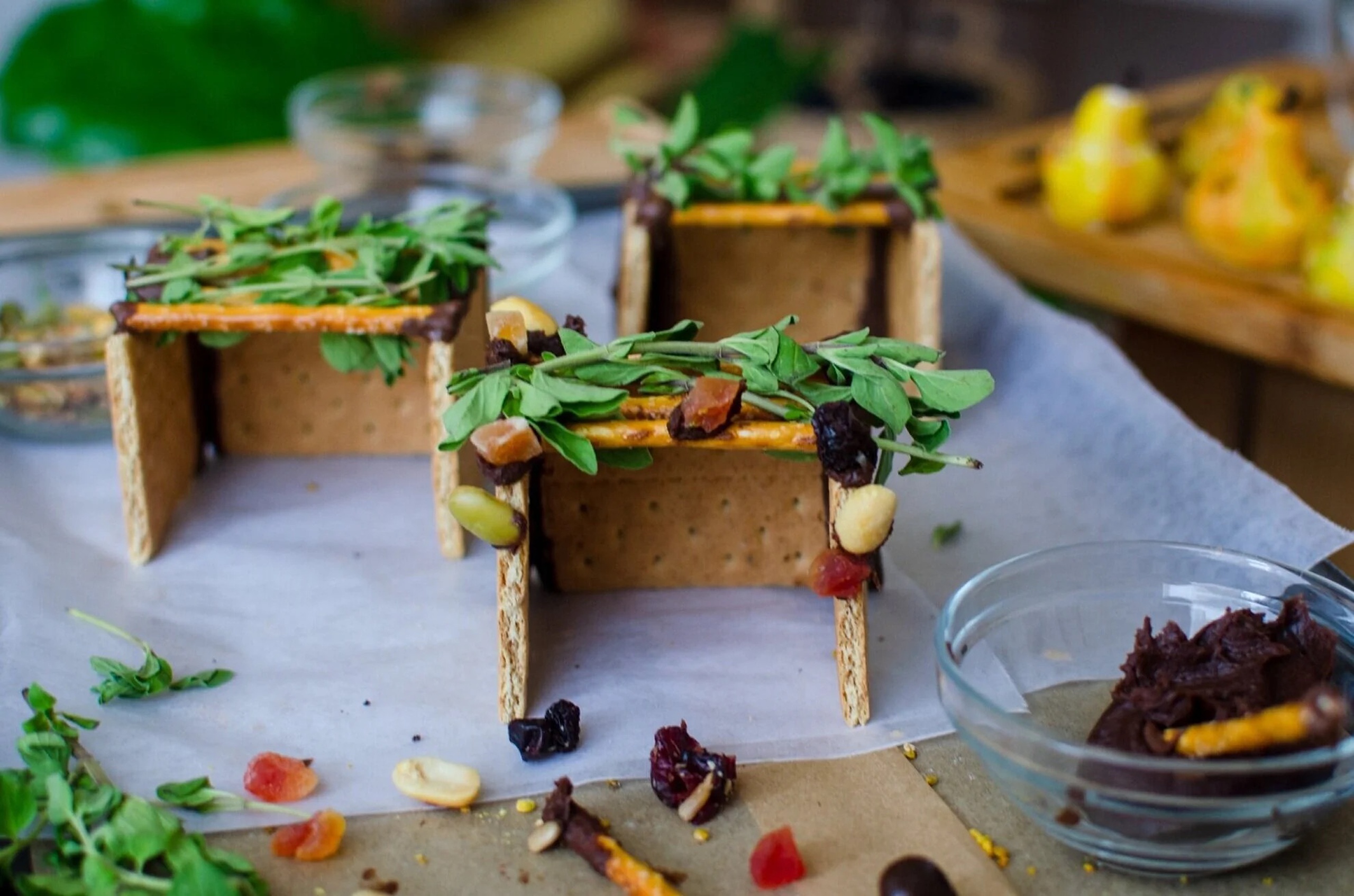Subtotal:
$10
How to Celebrate Sukkot without a Sukkah
Oct 6, 2025

Sukkot – which this year starts the evening of Monday, October 6, and runs through sunset on Monday, October 13 – is one of the most beautiful and joyous holidays on the Jewish calendar.
Beginning five days after Yom Kippur, the holiday is named for the huts in which the Israelites dwelt during their 40 years of wandering in the desert following their liberation from slavery in Egypt. Jews traditionally eat, entertain, and sometimes even sleep in these temporary structures throughout the weeklong celebration – and spending time outdoors in a sukkah, with a roof open to the sky, can be a positively magical experience.
But accessing a sukkah can be easier said than done. Not all of us have the ability to put up a sukkah of our own – and accessing a communal one, or getting an invite to a sukkah meal, isn’t always in the cards either. And while there’s no denying the sukkah is a main attraction of the holiday, Sukkot is about so much more than a physical hut.
The festival encompasses so many beautiful and meaningful themes, from celebrating the bounty of the autumn harvest season to acknowledging our fragility and the impermanence of the physical world to gratitude for our blessings and the unity of the Jewish people – and with our without a sukkah, we’ve got some easy ideas for making the most of Sukkot 5786.
Have a Picnic Outdoors
Part of the beauty of Sukkot is the way stepping out of our comfortable homes and into the spartan simplicity of a flimsy temporary shelter makes us step away from the material realm to focus on what really matters in life.
If you can’t make it for a meal in a sukkah, why not access those same sentiments by setting up an open-air meal in your own backyard or a local park? Your picnic can be as simple or as fancy as you wish; you can dine solo for a quiet, contemplative meal or invite family and friends to join you for a joyous celebratory feast (after all, Sukkot is the only festival on the Jewish calendar associated with an explicit commandment to rejoice!).
Shelter and Feed Others
A key theme of Sukkot is acknowledging our vulnerability, and reawakening gratitude for the basic material comforts we may take for granted during the year – and as such, there’s no better way to celebrate the festival than by providing those in need with shelter or food. Whether that means volunteering at a local food bank or shelter, making a charitable donation toward fighting hunger or homelessness, or hosting someone in need (whether material or emotional) for a meal, doing an act of chesed is one of the most meaningful ways to mark Sukkot.
Build an Edible Sukkah
This may just be my favorite way to celebrate – and it’s certainly the most adorable! For families, kids, or anyone who loves creativity and cooking, making an edible sukkah is such a fun project to take on. Take your lead from Tori Avey or Our Happy Tribe and build a tabletop graham cracker sukkah, using pretzels or cinnamon sticks and herbs for the roof. Then, decorate to your heart’s content with candies, nuts, dried fruit, or whatever you like.
If you want something a little easier (and healthier), how about a sukkah veggie board?
Embrace the Flavors of the Season
Try a traditional Sukkot recipe – kreplach and stuffed vegetables of all kinds are classics – or lean into autumnal abundance with ingredients like pumpkin, cranberry, apple, or pear.
Bonus points if you set a gorgeous harvest-themed table – think fall foliage, branches, autumnal linens, and handmade garlands – on which to enjoy your seasonal treats.
Attitude of Gratitude
Sukkot is the perfect time to cultivate a gratitude practice. A great way to do this is to make a habit of writing down what you’re grateful for at the end of each day (my Jewish Joy Journal, the bestselling gratitude and goals journal for Jewish women, is a wonderful tool to get you started doing just that). This can truly be anything and everything – from the big stuff, like shelter, food, and loving family and friends, to the tiniest moments.
If you live with a partner or family, you might also consider making it a daily (or weekly – Shabbat is the perfect time) practice for everyone to go around and take turns sharing something they’re grateful for. This is an especially great activity to do with children – but it’s so meaningful for adults too.
Do you have any other ideas for observing Sukkot without a sukkah? If you do, I’d love to hear about them in the comments!
